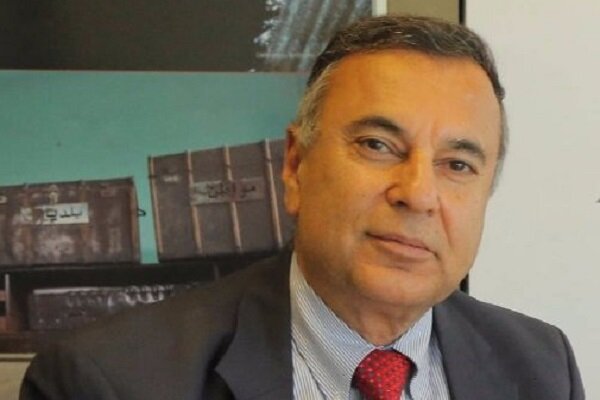Pegasus project showed Israel never hesitates to spy on friends: ex-Lebanese diplomat

TEHRAN - A former Lebanese ambassador to Chile, Poland, and Canada says that the Pegasus project showed Israel’s desire to spy on its allies as well as its foes.
“Historical incidents show how Israel has spied on its friends as much as it did on its foes, and Pegasus is only a new tool for Israel’s widespread spying activities,” Massoud Maalouf tells the Tehran Times.
Pegasus as a powerful hacking tool sold to governments around the world by the Israeli surveillance company NSO Group.
It has been used to spy on journalists, human rights activists, the fiancée of the murdered Saudi journalist Jamal Khashoggi and political leaders, according to a months-long investigation by 17 news organizations, including FRONTLINE.
Among the political leaders who have fallen victim to this project is French President Emmanuel Macron whose cell phone was targeted for potential surveillance on behalf of Morocco, Le Monde reported last week.
The French presidency said that if the revelations about Macron's phone being tapped were true, they would be very serious.
Le Monde said that former French Prime Minister Edouard Philippe and 14 ministers had also been targeted in 2019.
On the other hand, spyware is used to collect information about journalists and rights activists, especially in Arab monarchies that have normalized their ties with Israel.
“These countries may have gained access to Israel’s technological skills, including Pegasus, to spy on their citizens and human rights activists,” Maalouf remarks.
Following is the text of the interview:
Q: What is Israel's record in spying on other countries? Apparently, Israel is a pioneer in this regard.
A: We remember very well the story of Eli Cohen who was an Israeli spy in Syria in the early sixties. He even became the advisor to the Syrian Minister of Defense before he was uncovered, sentenced to death and hanged by the Syrian authorities.
We also know that Israel, under some so-called aid and assistance programs to different African countries, sends undercover spies to these countries to infiltrate their governments and influence their policies in its favor.
It is common knowledge that Israeli embassies around the world are staffed with intelligence officers as diplomats or administrative employees.
Q: How do you read the Pegasus Project and its implications for the world?
A: Israel is technologically advanced and it has always used its technology to spy on countries. Pegasus is dangerous spyware developed by an Israeli firm. It can be installed on all kinds of electronic devices including cell phones and it can read all the information stored in these devices. Although some governments are ostensibly purchasing this software in order to track terrorists and criminals, it appears that this software has been used to hack opponents including journalists, activists, NGOs and others in clear violation of civil rights.
Q: French President Emmanuel Macron has changed his phone and number after reports that he was targeted with Pegasus. This shows that Israel's spying is not limited to its foes. What is your comment?
A: A few historical incidents show how Israel has spied on its friends as much as it did on its foes, and Pegasus is only a new tool for Israel’s widespread spying activities:
a) In the aftermath of the 1968 Israeli attack on Beirut airport and the destruction of 13 civilian airplanes on the tarmac, French President Charles de Gaulle ordered an embargo on arms sales to Israel, which, at the time, had ordered the building of 12 military ships in the Cherbourg shipyards. In order to bypass the embargo, Israel sent spies posing as tourists to Cherbourg, where, on Christmas Eve 1969, they took the boats and moved them to Israel.
b) During the 1967 war, Israeli Air Force jet fighters and Israeli boats attacked the U.S. technical research ship USS Liberty, killing 34 and wounding 171 crew members. Although Israel apologized for the attack claiming that it was a mistake, survivors of the attack maintain it was a deliberate act.
c) The case of the infamous Israeli American spy, Jonathan Jay Pollard, who pleaded guilty in 1987 to spying and providing top-secret classified information to Israel, proves that this regime does not hesitate to spy on its closest ally and benefactor.
d) The spying on French President Macron is clear evidence that Israel does not limit its spying to its foes, but it also extends to its closest friends and allies.
Q: Some Arab monarchies are allegedly using Israeli-supplied Pegasus spyware to spy on journalists and human rights activists. What is your comment?
A: Former U.S. President Trump convinced some Arab countries to establish diplomatic relations with Israel. Besides trade and technological assistance, these countries may have gained access to Israel’s technological skills, including Pegasus, to spy on their citizens and human rights activists.
Q: What is Lebanon's experience when it comes to Israel's spying and assassination operations?
A: Before the 1967 war, a vibrant Jewish community lived and thrived in Lebanon with their schools, synagogues and businesses. Although most of the members of this community were loyal Lebanese citizens, a few of them became spies for Israel.
In 1973, Israel dispatched a team of army special forces by boat to Beirut where they assassinated three top military leaders of the PLO in their homes. Such an operation could not have been conducted without spies on the ground.
In 1979, the Palestinian activist, Ali Hassan Salameh, known as Abou Hassan, was assassinated in Beirut by an Israeli commando.
In its numerous military attacks on Lebanon by air, sea and land, Israel has definitely relied on a network of spies to determine its targets and for planning.
These are only a few examples of the result of Israel spying on Lebanon which has been the scene of numerous attacks by Israeli commandos.
Leave a Comment